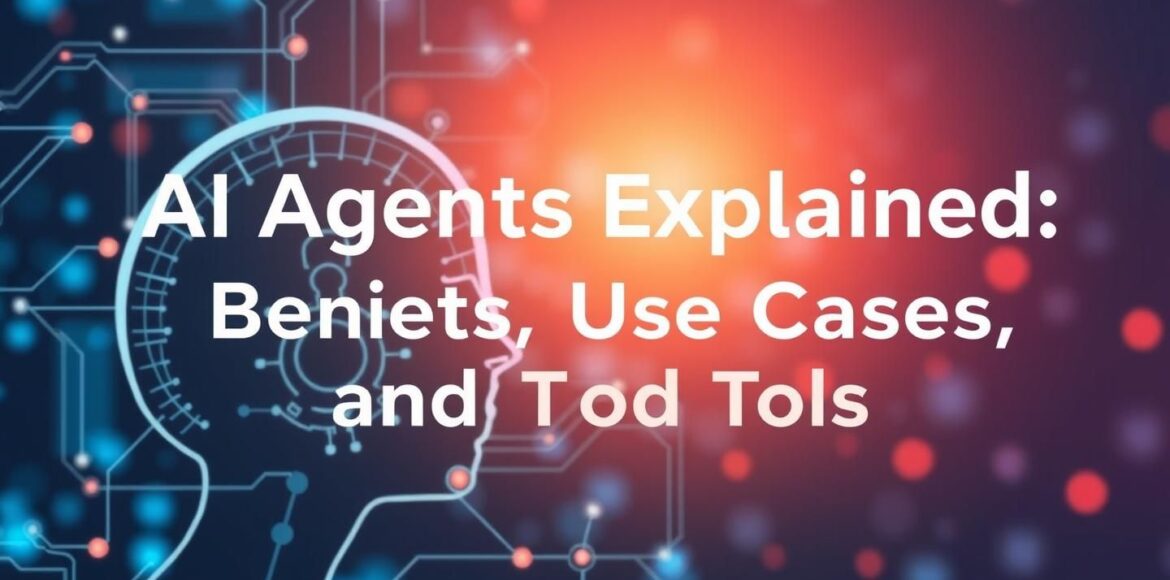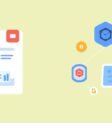
Understanding AI Agents: What They Are and How They Work
AI agents are software entities designed to perform tasks autonomously by interacting with their environment using artificial intelligence techniques. These agents can perceive data, process information, and make decisions without constant human guidance. Their architecture typically includes components such as sensors for data collection, actuators for task execution, and a decision-making system powered by machine learning models or rule-based algorithms. This autonomy allows AI agents to operate efficiently across diverse domains, from simple automation to complex problem-solving, making them a cornerstone of modern AI applications.
Benefits, Use Cases, and Popular Tools for AI Agents
Benefits:
- Efficiency and Productivity: AI agents automate repetitive and time-consuming tasks, freeing human workers for higher-level activities.
- 24/7 Availability: Unlike humans, AI agents can operate continuously without breaks, enhancing service availability.
- Consistency and Accuracy: They perform tasks with high precision, reducing human error.
- Scalability: AI agents scale easily to handle increasing workloads and complex data inputs.
Use Cases:
- Customer Support: Chatbots and virtual assistants answer queries, resolve issues, and guide users in real-time.
- Financial Services: AI agents assist in fraud detection, risk assessment, and automated trading.
- Healthcare: They help in diagnostic support, patient monitoring, and personalized treatment plans.
- Smart Homes and IoT: AI agents control lighting, security systems, and appliances for personalized home automation.
- Marketing and Sales: They analyze customer behavior, optimize campaigns, and recommend products.
Popular AI Agent Tools:
- OpenAI’s GPT Models: Widely used for conversational agents and content generation.
- IBM Watson Assistant: A robust platform for building AI-driven virtual assistants.
- Google Dialogflow: Simplifies the creation of chatbots with natural language understanding.
- Microsoft Azure Cognitive Services: Offers a suite of AI tools for building adaptable agents.
- Rasa: An open-source framework for developing customizable AI assistants.
Integrating AI Agents for Business Success
Successful deployment of AI agents requires a strategic approach. Businesses should begin by identifying repetitive or time-sensitive tasks suitable for automation. Integration with existing systems and continuous training of AI models to grasp domain-specific nuances are crucial. Monitoring performance metrics and user feedback helps optimize agent responses and adapt over time. By leveraging AI agents effectively, organizations can achieve enhanced operational efficiency, better customer engagement, and innovative service delivery.
Conclusion
AI agents represent a transformative technology capable of revolutionizing how tasks are performed across industries. Their benefits of automation, scalability, accuracy, and constant availability enable businesses to enhance productivity and customer experience. From virtual assistants to complex decision-makers, AI agents have diverse applications made accessible through powerful tools. Understanding and strategically implementing AI agents unlocks significant potential for future growth and innovation.






